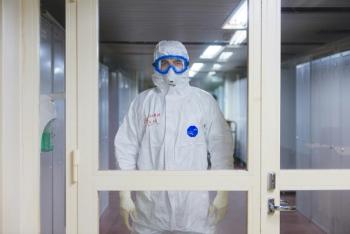
- August 2015
- Volume 2
- Issue 3
Ebola Virus Can Persist in Wastewater for Over a Week
Current epidemic response procedures may change due to the finding that the Ebola virus can persist in wastewater longer than previously believed.
Current epidemic response procedures may change due to the finding that the Ebola virus can persist in wastewater longer than previously believed.
The understanding has been that Ebola can only be transmitted through direct contact with bodily fluids. However, a recent study revealed that the
Another report documented that even an
“Initial research by the [World Health Organization] WHO and [Centers for Disease Control and Prevention] CDC recommended disposing of Ebola-contaminated liquid waste into a latrine or treatment system without disinfection because of the virus wasn’t expected to persist in wastewater,” principal investigator Kyle J. Bibby, assistant professor of civil and environmental engineering at Pitt’s Swanson School of Engineering, said in a
However, the
Not only do the results indicate that Ebola is more persistent than previously believed, but it also means that the virus has another pathway for transmission. A patient infected with Ebola can produce up to nine liters of liquid waste each day; therefore, even greater precautions should be taken when handling contaminated liquid waste.
“While the Ebola virus was found to be generally less persistent than enteric viruses in wastewater, the identified survival period might suggest a potential of a wastewater exposure route,” explained co-author Charles Haas, of Drexel University.
The researchers suggest holding contaminated liquids for longer before releasing them into sewage systems — a practice the WHO has already began. They also propose to pretreat the contaminated liquids with chlorine or another antiviral agent in order to disinfect the waste.
“These results indicate that further research is needed with a more holistic approach to assessment of Ebola-infect wastewater, from storage to treatment to disposal and continued monitoring, including a precautionary approach to wastewater handling in all epidemic responses,” Bibby concluded.
Articles in this issue
over 10 years ago
Antibiotic Use May Increase Risk of Type 2 Diabetesover 10 years ago
Current Legionnaires' Disease Outbreak: What You Need to KnowNewsletter
Stay ahead of emerging infectious disease threats with expert insights and breaking research. Subscribe now to get updates delivered straight to your inbox.
































































































































